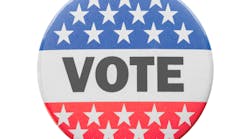We are now well into the middle of an election year. We can make good guesses about who each party’s candidate will be as we prepare for the election on November 3, 2020. It’s a big year! But don’t worry, this article isn’t about politics or picking a side. Everyone may have had enough of that already!
We’re going to talk about the fact that employers are required to provide paid or unpaid time off for employees to vote. Depending on your state’s primary you may already have had these obligations, and you will definitely be obligated as we move closer to the general election in November.
What obligations, you may ask? Employers have the responsibility to ensure that their employees have the time to vote. Yes, though it may come as a surprise to many of you, this is true. Voting leave laws are very real.
Unlike other laws, this one flies under the radar for many employers. It’s not nearly as discussed and prevalent in our society as discrimination, retaliation, pregnancy protection, or wage and hour concerns. These are the hot topics that generate flashy, scary headlines and worry employers, and rightfully so because they can be very costly.
While most of the voting leave laws have manageable fines and penalties associated with them, that’s not true in all cases when it comes to violating voting leave laws. For example, several states call for Class A misdemeanor charges and possibly jail time. Here’s an example from Colorado: “Colo. Rev. Stat. § 1-7-102: A violation of the statute is a Class 2 misdemeanor punishable by a fine of not more than $1,000, or by imprisonment in the county jail for not more than one year, or by both. In addition, any corporation violating this section shall forfeit its charter and right to do business in the state.”
It is now easier to list the states that do not have voting leave laws than the ones that do. As of the writing of this article, the states with no voting leave requirements are Connecticut, Florida, Idaho, Indiana, Louisiana, Maine, Michigan, Montana, New Hampshire, North Carolina, Oregon (vote-by-mail system in place), Rhode Island, Vermont, and Virginia. Though it’s not a state, the District of Columbia also has no law. Technically, Washington state has a voting leave law but it’s no longer applicable due to the state’s change to vote-by-mail.
When in place, what do these laws require? The main thing is time off for voting. That time is usually about one or two hours. In many cases, the time does not have to be provided if the employee will otherwise have time off during polling hours to vote. The laws vary on this and can be up to three or more hours of “off time.”
For example, say an employee resides in a state where the voting law does not apply if that employee has at least three hours of off time during polling hours. If an employee’s shift ends at 5 p.m. and the individual resides in a state where polls remain open until 8 p.m., then the employer is not otherwise required to provide additional time off for the person to vote.
In general, if employees have a right to voting leave, they must make a request for that time off in advance. The laws usually build in the ability for the employer to choose the best time for this to occur during the workday.
In many cases, wages have to be paid for the one or two hours that must be provided for time off. There are also some posting requirements, which may include implementing an office policy. Nearly all of the laws prevent any form of discrimination or retaliation against an employee who exercises his or her right to take voting leave.
Are you prepared for what’s coming? If you don’t know your state’s law on this issue, make sure you look it up so that you understand your obligation. A simple Google search of “states with voting leave laws 2020” will provide a wealth of information and likely lead you to your state’s statute. There is no need to be caught off-guard on this. We’ve not heard of someone going to jail for this, but we don’t want you to be the first one!
REBECCA BOARTFIELD is an HR compliance consultant for Bent Ericksen & Associates while TIM TWIGG serves as president. For more than 30 years, the company has been a leading authority in human resources and personnel issues, helping dentists successfully deal with ever-changing and complex labor laws. To receive a complimentary copy of the company’s quarterly newsletter or to learn more, call (800) 679-2760 or visit bentericksen.com.






